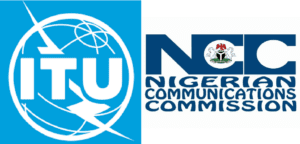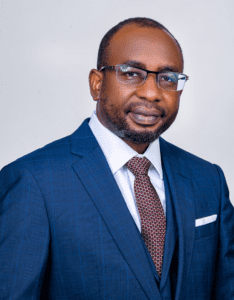
2022: Visionary leadership, increased collaboration drive growth in ICT sector
The year 2022 was a progression of growth for the Nigerian ICT sector. With visionary leadership at the Ministry of Communications and Digital Economy and it’s parastatals to increased synergy between the government and private sector players, the sector was able to move forward.
Nigerian NewsDirect analysis of the progress of the sector revealed the wins to be celebrated and the issues yet unresolved needed to be tackled in the year 2023. GDP contribution
2022 recorded the highest contribution of the Nigerian Information and Communication Technology (ICT) to the Gross Domestic Product (GDP) of the country, the highest in five years.
At a record high of 20.32 percent in Q3 2022, the sector saw an increase in growth of 9.15 per cent in 2022 compared to the preceding years where it recorded 11.2, 15.9, 11.2, and 12.1 percent, respectively.
According to the report released by the National Bureau of Statistics (NBS), NBS reported that the non-oil sector grew by 4.27 percent in the third quarter of 2022, and was driven mainly by Information and Communication (Telecommunication), Trade, Transportation (Road Transport), Financial and Insurance (Financial Institutions); Agriculture (Crop Production) and Real Estate, accounting for positive GDP growth.
Data from the report disclosed that the nominal sector saw a 9.58 per cent increase in the third quarter of 2022, higher than 9.22 per cent recorded in the same quarter of 2021.
While the real sector recorded an increase of 0.87 per cent from 15.35 per cent recorded in 2022 and 14.20 percent recorded in 2021.
However, the country’s ICT sector comprises four activities – Telecommunications and Information Services, Publishing, Motion Picture, Sound Recording, and Music Production; and Broadcasting.
Conclusively, the sector’s growth was driven largely by revenue from telephone, telex, Facsimile, telegraph, and other income from satellite and internet services.
Broadband penetration
Nigeria set its broadband penetration target at 70 per cent to be achieved by 2025. Nigeria’s broadband penetration stood at 45.55 per cent as of October 2022. This means Nigeria has additional 24.49 per cent in terms of broadband coverage to achieve.
The plan, which was launched in January 2020, was designed to deliver data download speeds across Nigeria, a minimum of 25 megabits per second (Mbps) in urban areas, and 10Mbps in rural areas, with effective coverage available to at least 90 per cent of the population by 2025 at a price not more than N390 per 1 gigabyte of data (i.e. two per cent of median income or one per cent of minimum wage).
The plan also includes deployment of 120,000 kilometer of fibre across the country and connection of 60 per cent of Communication towers with fibre as stipulated in its approved Terms of Reference (ToR).
At the current 46.24 per cent penetration, broadband penetration has seen a growth of 8 per cent within the two years since the plan was implemented. To achieve the 70 per cent target, Nigeria will need to speed up on the implementation of the initiatives to fastrack penetration and also pay attention to alternatives like Satellite communications to accelerate penetration in rural areas.
5G deployment
In the year 2022, telecom subscribers stood at 218,608,607 based on available industry statistics available on the website of the Nigerian Communications Commission. This means the sector added 25,754,201 consumers between November 2021 and November 2022. The total number of internet subscriptions grew to 152,891,470 as at November 2022.
In the year in review, the country accelerated it’s movement to deploy 5G in Nigeria with MTN Nigeria became the first telecommunication provider in Nigeria to roll out the 5G mobile network in Nigeria in August 2022.
MTN, who won the auction for the 3.5GHz 5G spectrum alongside Mafab Communications in December 2021, commenced the roll-out by switching on the network in 190 sites across the country.
Currently, MTN’s 5G has only been launched in Lagos which is but a fraction of the entire Nigerian population.
With the rollout of 5G is the grappling challenge of affordability affecting the adoption of 5G. 5G network will require using a 5G enabled phone and many of this 5G enabled phones are fixed at price tags equivalent or above the yearly wage of many Nigerians.
The year also saw MAFAB Communications the second winner of the 3.5Ghz spectrum auction held in December 2021 fail to roll out 5G services which is contrary to the Information memorandum.
Commenting on the delay in rollout by Mafab Communications, the NCC explained that the Commission is aware of the challenges being encountered by the operators while noting that the operator as a new entrant needed to acquire an operational license to operate and that occasioned the delay in the rollout.
The Executive Vice Chairman of the NCC, Prof Umar Danbatta noted that the Commission in her regulatory diplomacy had approved the licenses MAFAB applied for and also the extension of time for rollout for 5G services by the operator.
Despite the earlier challenges experienced with misinformation regarding 5G and difficulties with deployment, Nigeria auctioned 2 more slots on the 3.5Ghz spectrum in the year 2022.
Though the Nigerian Communications Commission (NCC) auctioned 2 slots, Airtel Nigeria emerged as the sole bidder for the 3.5Ghz spectrum.
This is following the failure of the other participant in the proposed auction to pay the Intention to Bid Deposit (IBD) as stipulated in the Information Memorandum (IM) issued by NCC.
The Reserve Price for the spectrum has however been fixed at Two Hundred and Seventy-Three Million and Six Hundred Thousand United States Dollars only (US$273,600,000.00) or its equivalent in Naira at the prevailing Central Bank of Nigeria (CBN) rates at the time of the auction.
Infrastructure protection and Right of Way (ROW)
Destruction of ICT infrastructure continued to be a major issue for the sector. The growth of the sector thrives largely on increasing in-country capacity (Infrastructure).
Though the year saw two major subsea cables arrive on her shores, the safety of the infrastructure is a concern for stakeholders who have made huge investments in infrastructure.
President Muhammadu Buhari earlier in 2020 accepted the proposal of the Minister of Communications and Digital Economy to identify telecoms infrastructure as critical national infrastructure. However, security concerns despite the directive still remain an issue. Network outage expeirenced during the year in review were largely attributed to vandalization of telecoms infrastructure.
There is also yet to be a uniform Right of Way price across the country. Lagos State at the Lagos state Infrastructure Maintenance and Regulatory Agency (LASIMRA) Stakeholders conference stated that due to its peculiarity, it cannot adopt a uniform price for Right of Way (Charges) as the NCC proposes.
In 2021, the country was close to making all State Governors embrace the N145 uniform fee for RoW, with as many as six Governors pledging to either reduce the fees to N145 or remove fees altogether.
However, as at now, only three states have actually implemented their pledge as of December 2022. Minister of the Federal Capital Territory, Mohammed Bello, announced in November that telecommunication operators that want to deploy broadband infrastructure in green areas will only pay N14.50 per linear square as RoW charges. The discounted charges would commence on December 1, 2022 and run for the next two years.
The remaining 33 states have taken different approaches.
Foreign exchange
Considering the drastic fall of the Naira to dollar in the year 2022, it was particularly difficult for local operators to expand their capacity and purchase equipments.
In an interview with Nigerian NewsDirect in 2022, the Group Managing Director, VDT Communications, Biodun Omoniyi lamented the difficulty of recouping investments because of the cost of foreign exchange.
According to Omoniyi, “When you talk about communication, I hope you know that there are equipments involved. The question now is that how many of these equipments do they manufacture in Nigeria? Zero. We buy all of these equipments in foreign countries.
“When you buy from other countries, you need forex including phones. You cannot expand your network. When company talks about Network expansion, it means they are going to buy more equipment. Meanwhile, they provide service in Naira here.
“If the Naira has been falling, cost to buy those expenses shoot up. Dollar used to be N350, 360 et cetra about one year ago. The dollar you gather now which you felt will be able to buy three equipments, can only buy you two. The telecoms companies are import dependent and it is affecting the industry badly. The country needs to intentionally promote indigenous manufacturing and make access to forex easy.”
However, to mitigate the challenges of importation, the Minister of Communications and Digital Economy, Dr. Isa Ali Pantami giving his keynote address at the 2022 edition of the Nigerian Telecommunications Indigenous Content Expo (NTICE), held in Lagos, Pantami charged stakeholders to intensify efforts in the promotion of Nigeria’s indigenous telecommunications sector.
The expo was organised as part of efforts to vigorously pursue the objectives of the National Policy for the Promotion of Indigenous Content in the Nigerian Telecommunications Sector (NPPIC), through the National Office for Developing Indigenous Telecoms Sector (NODITS) domiciled in the NCC.
Conclusion
Retrospectively, the year 2022 was a good year that demonstrated more than ever the need for the Nigerian government to pay more attention to increased investment in technology and collaboration with stakeholders to develop policies for the ICT ecosystem and the digital economy at large. With an improved policy framework and ease of doing business, the ICT sector in Nigeria will be positioned to experience increased growth in the year 2023.



